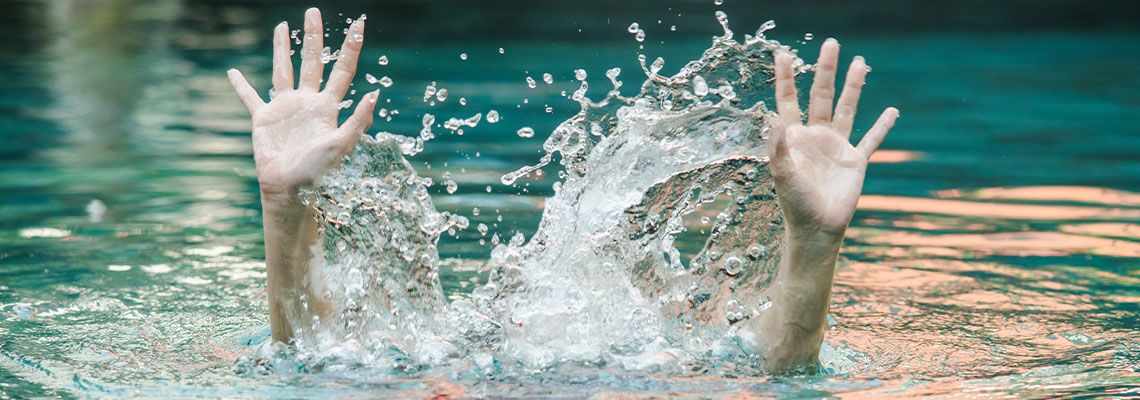We Represent You! SCHEDULE A FREE CONSULTATION

Swimming Pool Accidents, Injuries & Deaths
Having access to a swimming pool can provide a welcome relief from the summer heat and be enjoyed by family members of all ages. However, swimming pools can also be dangerous places. And a quick dip can quickly go wrong, especially when negligence from the property owner or pool staff is at play.
Swimming pool accidents occur more often than you may think, yet most people are unsure of who should be liable for these incidents. Sadly, these accidents happen mostly to children. On average, each year, there are about 6,300 non-fatal drowning injuries treated in the emergency room for children under the age of 15—according to data put out by the U.S. Consumer Product Safety Commission and is a staggering reminder of the hazards that can befall any of us.
If you’re in Dunwoody, Alexandria, or Atlanta, Georgia, and would like more information about pursuing a personal injury or wrongful death claim for a pool accident, call the Law Firm of Walter Gabriel, LLC.
Common Pool Injuries
There are several different kinds of injuries that can happen in or around a swimming pool. The following cover some of the most common:
Drowning or near-drowning incidents: These are perhaps the most horrific accidents where someone is submerged under the water and suffocates. This can happen if a person becomes entrapped by an object like a pool toy or becomes entangled underwater. This can result in death, but even if the person survives there is a risk of brain damage.
Slip-and-fall accidents at pools: There’s a reason you see NO RUNNING signs scattered across public pools. By nature, surfaces surrounding pools are often slippery. Slip-and-fall accidents can occur on the pool deck, on a diving board, pool ladder, and anywhere else on the property. This can result in broken bones, head or neck injuries, or cause someone to fall into the pool who’s not able to swim. It’s important to recognize these are not always caused by reckless behavior like running.
Chemical burns from pool chemicals: If the chemicals used to keep the pool clean are not measured correctly, or if someone uses the pool before the chemicals have had a chance to dissipate, they could end up with chemical burns on their skin or internal injuries from inhaling toxic fumes.
Determining Liability in a Georgia Swimming Pool Accident
Understanding premises liability
One key legal concept to understand when filing a claim for a swimming pool accident or swimming pool death is that of premises liability. The laws of premises liability in Georgia state that the person who owns or manages a property has a responsibility to maintain that property and keep it free of hazards. If they are negligent in this duty, then any injuries that occur due to these unchecked hazards will be the financial responsibility of the property owner.
Public vs. Private Pools
There will be some differences in the way you pursue injury cases depending on whether the pool is public or private.
City/local pools: A public pool must comply with more regulations than a privately-owned pool such as how often they must be sanitized and what pool rules must be posted. However, city pools are protected under the Georgia Recreational Property Act which can bar many types of lawsuits against them should someone get injured.
HOA pools: HOA pools are considered privately-owned though they are required to carry property insurance which can be paid if a claim is filed against them.
Possible Liable Parties
In all personal injury cases, you’ll need to prove liability and in a swimming pool accident, fault can be assigned to a few different parties. For example, a private, residential pool owner may be found liable under the state’s “attractive nuisance” law if they don’t take adequate measures to keep others out such as building a fence around the pool with a locking gate.
In other cases, if you can show that the pool owner didn’t comply with state regulations (such as posting required signs), they could be held liable. Still in others, the parents of an injured child could be held liable if they failed to keep a watchful eye over their child.
Filing an Injury Claim
The first step to take when filing a claim is to contact an experienced personal injury attorney, especially if you’re pursuing a swimming pool accident lawsuit. Your attorney can then help you gather evidence that the property owner's negligence caused the accident to happen and that you (or a child/loved one you’re representing) were injured due to that accident.
For both personal injury and wrongful death claims, the statute of limitations is two years from the date of the accident. If you wait any longer to file, a judge will likely dismiss your case.
Explore Your Options for Compensation
If you’d like to learn more about your options for compensation after a swimming pool accident, call the Law Firm of Walter Gabriel, LLC. Atlanta, Georgia to speak with an experienced attorney. Attorney Walter Gabriel is well-versed in premises liability law and has experience handling cases that involve swimming and drowning accidents. Put his knowledge in your corner today.
